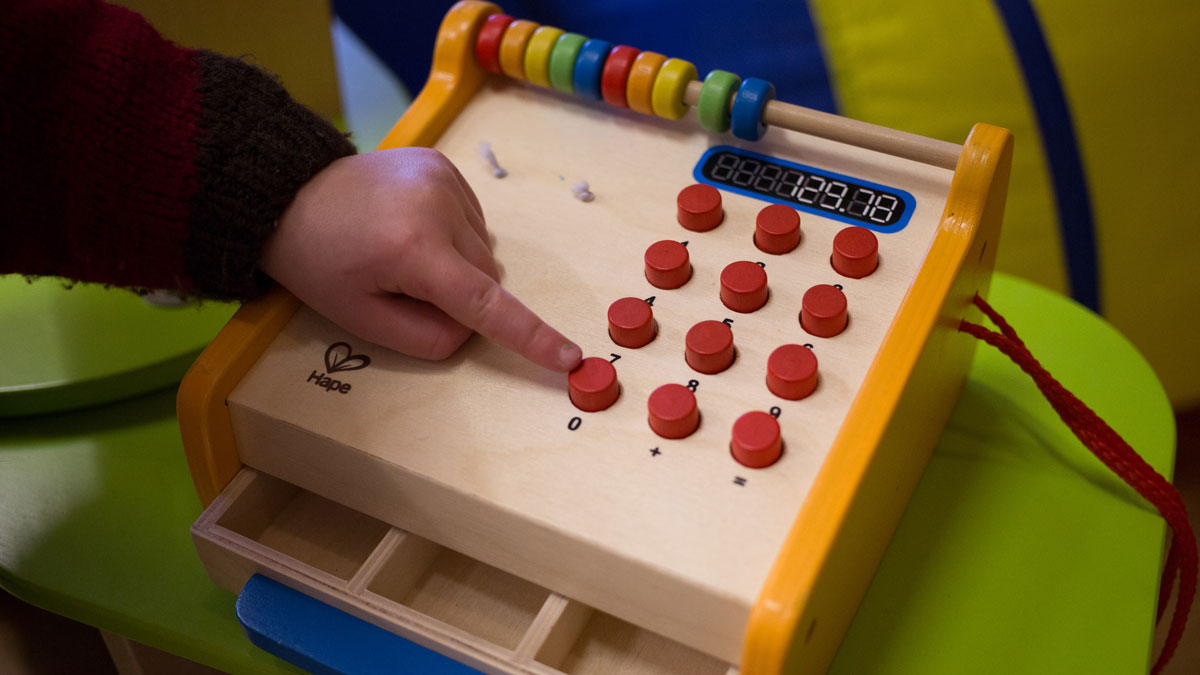Five tips to teach your children about money
Financial education is now on the national curriculum, but that might not be enough

A free daily email with the biggest news stories of the day – and the best features from TheWeek.com
You are now subscribed
Your newsletter sign-up was successful
Since September 2015 financial education has been part of the curriculum at secondary schools, but that doesn’t mean parents should sit back and assume their child’s teachers are instructing them on everything they need to know about money.
For a start, many schools still aren’t teaching money lessons. A survey in December last year by the London Institute of Banking and Finance found that 58 per cent of pupils aged 15-18 said they had received no personal finance education.
Even if your child’s school has adopted financial education into its curriculum it may not be doing any good. The Jumpstart Coalition for Personal Finance Literacy, a US campaign group, has conducted five surveys that all showed that teaching personal finance in school makes no difference to how well youngsters understand or use financial information.
The Week
Escape your echo chamber. Get the facts behind the news, plus analysis from multiple perspectives.

Sign up for The Week's Free Newsletters
From our morning news briefing to a weekly Good News Newsletter, get the best of The Week delivered directly to your inbox.
From our morning news briefing to a weekly Good News Newsletter, get the best of The Week delivered directly to your inbox.
In fact, putting financial education into the curriculum at secondary schools could well mean children are learning about money too late. Researchers at the University of Cambridge found that children’s money habits are formed when they are far younger – typically they start from age seven.
So, if you want your child to be savvy with their pocket money and grow into financially astute adults you need to start teaching them the value of a pound.
Here are five money lessons to teach your child:
1. What it is
A free daily email with the biggest news stories of the day – and the best features from TheWeek.com
A startling number of children no longer handle cash. A quarter of parents paid pocket money in digital currencies to use in online games, according to a survey in 2015. A third of parents gave their children pocket money via online banking transfers.
Try to give your child at least some of their pocket money in physical cash, it will help younger children understand the benefits of saving if they see their money growing in their piggy bank. Conversely they’ll also physically see their money disappear when they spend it.
2. How to spend it
Getting your child to help you with the shopping is a great way for them to start to learn about money. “By the age of ten, they should be able to go into a shop and buy a snack or drink, and know exactly how to count out the money and the change they should receive,” says Joel McFadden in The Guardian.
3. How to earn it
Paying your children for doing chores is a great first lesson in earning money. “Once children have a good grasp of money, it’s amazing how entrepreneurial they can be,” says Justin Urquhart Stewart of Seven Investment Management, in The Times. “My children regularly boost their own pocket money through toy sales outside our house.”
4. Household budgets
Talking to your children about the household finances and how covering the cost of your mortgage and bills means there may be less to pay for fun items can help children learn about essential spending versus the extra things they want but don’t need.
5. The value of saving
Encouraging your children to save their pocket money for things they really want is an multi-faceted lesson. It teaches them delayed gratification, they are also likely to value the item more if they had to save for it, and - if you agree to contribute if they hit a certain savings target – it can also be the first step to learning about how interest can help them achieve their savings goals.
-
 Why is the Trump administration talking about ‘Western civilization’?
Why is the Trump administration talking about ‘Western civilization’?Talking Points Rubio says Europe, US bonded by religion and ancestry
-
 Quentin Deranque: a student’s death energizes the French far right
Quentin Deranque: a student’s death energizes the French far rightIN THE SPOTLIGHT Reactions to the violent killing of an ultra-conservative activist offer a glimpse at the culture wars roiling France ahead of next year’s elections.
-
 Secured vs. unsecured loans: how do they differ and which is better?
Secured vs. unsecured loans: how do they differ and which is better?the explainer They are distinguished by the level of risk and the inclusion of collateral